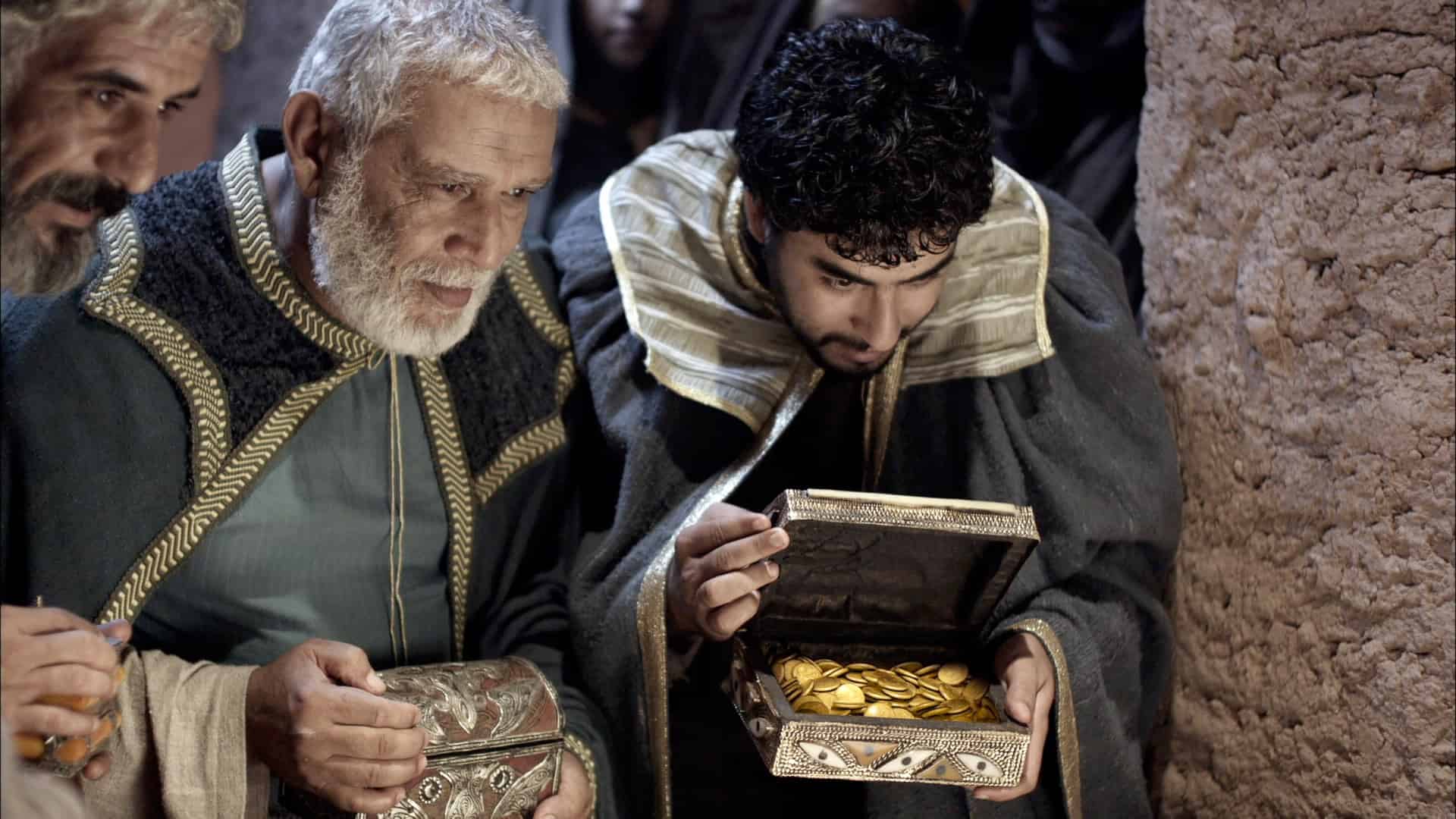After “His star” (Matt. 2:2) led the wise men to “the place where the child was,” (v. 9), the travelers entered the house and “saw the child with Mary His mother.” Kneeling before Him, “they worshiped Him. Then they opened their treasures and presented Him with gifts: gold, frankincense, and myrrh” (v. 11). Each gift had special significance.
- Gold represented royalty. Jesus was and is, not just a king, but King of kings (see 1 Tim. 6:13-16; Rev. 17:14). Seneca (4 B.C.-A.D. 65), a Roman philosopher, orator, and writer, stated that in Persia it was customary anyone approaching a king had to offer him a gift, and that no gift was more appropriate for a king than gold. Persia was the place in the East from which the wise men probably came, but we see this theme in ancient Israel and in many other places. For Old Testament evidence, see Genesis 41:42; 1 Kings 9:14,28 [2 Chronicles 8:18]; 1 Kings 10:10 [2 Chronicles 9:9]; 1 Kings 10:14,18-21 [2 Chronicles 9:13,17-20]; 1 Chronicles 20:2.
- Frankincense represented deity, for incense was used in worship in the temple. Israel’s priests were anointed with a mixture of oil and incense. Incense also was added to meal offerings, and it gave these offerings a pleasing fragrance. Significantly, it was never added to sin offerings. Certainly Jesus sacrificed His own life for human sin and was a sin offering in this sense. But the point here is that He Himself was completely sinless and would remain so throughout His life. This made Him the perfect sacrifice for human sin, so that no additional sacrifice ever would need to be made (see Heb. 7:27-28).
- Myrrh foreshadowed Jesus’ death, for it was a substance used in embalming. In John 19:39, Nicodemus brought “a mixture of about 75 pounds of myrrh and aloes” to anoint Jesus’ body for burial. Nicodemus and Joseph of Arimathea prepared the body “according to the burial custom of the Jews” (v. 40). Surely 75 pounds of “myrrh and aloes” represents a great deal of myrrh—and this was for just one body. The point is that myrrh was a valuable item. Also noteworthy is the fact that when Jesus was dying on the cross, He was offered “wine mixed with myrrh, but He did not take it” (Mark 15:23). At least to some extent, myrrh would have diminished Jesus’ pain; but Jesus refused it, choosing instead to bear the full brunt of sin’s consequences on our behalf.
Numerous scholars have pointed out that the wise men’s gifts surely became the means by which this little family was able to escape to Egypt (see Matt. 2:13-15). This is certainly worth recognizing, for it underscores God’s faithful provision. Yet the greater point regarding the gifts is even more basic than this. And it’s even more foundational than the significance of each gift described above. Here is the linchpin of this event, the “take home” lesson for us. Worship involves giving! In fact, we cannot truly worship without giving to the One to whom we wish to pay homage. Our gifts for Jesus surely will involve money, time, talents, and other tangible and intangible resources, but we can give Him no more appropriate gift than ourselves (see Rom. 6:12-13; 12:1-2; 1 Cor. 6:19-20; 1 Pet. 2:1-5).
Copyright © 2015 B. Nathaniel Sullivan. All rights reserved.
photo credit: www.lumoproject.com
Unless otherwise noted, all Scripture quotations in this article are taken from the Holman Christian Standard Bible®, Copyright © 1999, 2000, 2002, 2003, 2009 by Holman Bible Publishers. Used by permission. Holman Christian Standard Bible®, Holman CSB®, and HCSB® are federally registered trademarks of Holman Bible Publishers.
